Refine
Date Range Clear
Recorded by Clear
Keywords Clear
Partnerships Clear
- No matching terms.
Organizations Clear
- American Geophysical Union 35
- National Aeronautics and Space Administration 9
- The American Geophysical Union 4
- American Geopysical Union 2
- NASA 2
- 11 more
Places Clear
Languages Clear
- No matching terms.
Initiatives Clear
- No matching terms.
Jeremy Werdell, an Oceanographer in the Ocean Ecology Laboratory at NASA Goddard Space Flight Center, discusses his lifelong passion for studying the ocean, which started with a school field trip to a marine biology lab. He describes how happening to...
We won’t say how long Susan Lozier has been shaping young minds at Duke University (she may let it slip), but she talks about amazing changes that have happened during her tenure. She grew up wondering how rivers get polluted,...
Conor Nixon, a space scientist at NASA--Goddard Space Flight Center, discusses his work studying the outer planets. Watching the Cosmos show growing up interested him in the solar system and he's been studying the outer planets most of his life....
In this inspiring interview, Becca Barnes, Bianca Rodriguez-Cardona, Evelyn Valdez-Ward, and Ben Sulman, four early-career biogeoscientists come together to share their reflections on what it means to be a scientist today. How can scientific knowledge be spread on social media?...
Ioan Lascu, research geologist at the Smithsonian Museum of Natural History, shares stories of his work studying minerals and rock magnetism. What do bacteria affect magnetism? What can we learn from stalagmites and stalactites? Why has there been in a...
Steven Pawson, Chief of the Global Modeling and Assimilation Office at NASA Goddard Space Flight Center, shares his experiences working on atmospheric and Earth systems science, including interactions between the Ozone Layer and climate change, and predicting air quality for...
Lawrence Friedl discusses his life and experiences as Director of the Applied Sciences Program in the Earth Science Division at NASA Headquarters. Interested in space from a young age, he developed an interest in how the environment and public policy...
Emily Schaller, project manager at NASA's National Suborbital Research Center at Ames, discusses her Ph.D. work studying the clouds on Titan and her work as a science and education. She recalled how as a young child, she would study illustrations...
Rachel Hampton ended up in the geosciences because she couldn’t find the art history class she was looking for. From asking a TA if she could join him on fieldwork to doing her senior thesis on volcanoes without a professor...
When Quinyan Duan was a student in China, he found his way into hydropower engineering. He wanted to pursue a graduate degree but couldn’t find the right professor to guide him. He took the difficult step of applying in the...
Paul Newman, Chief Scientist for Earth Science at NASA Goddard Space Flight Center and the co-chair to the Montreal Protocol, is one of the planet’s top ozone watchdogs – a self-described detective who looks for any chemicals which may deplete...
David Crisp, senior research scientist at NASA, recounted his adventures, from going from a physics education major who had a paper on Venus winds published by Carl Sagan to a doctoral student at Princeton to helping fix Hubble. He described...
In begin in 1979, when Margaret Kivelson, UCLA, was part one of three women presenting a talk in which Fran Bagenal, University of Colorado Boulder, was sitting in the audience. They have been space scientists and collaborators for many years...
Rafael Loureiro may confess to being an introvert, but he has no fear of people. He started off talking about AGU’s Voices of Science bootcamp, which he is participating in this year to develop his spokesperson skills. That segued into...
Imagine this upbringing: only child, suburbs of Maryland, daughter of a mathematician and a pastry chef. If you guessed that child would achieve a management role with NASA’s famed IceBridge2 mission, congratulations, you truly have exceptional foresight. Linette Boisvert McPartland...
Mei Zheng studies and teaches atmospheric science at Peking University. She’s passionate about training the next generation of scientists, and ensuring that everyone has access to clean air. “A teacher’s job is to encourage, inspire, and challenge students to do...
Erica Bickford’s advice to early career scientists or students is to look outside academia and explore all the potential career options available to scientists. She is particularly aware of the importance of science in daily life and in the policy...
Carlos Nobre is a climate scientist with the Institute of Advanced Science in Brazil. Together with twelve hundred scientists, he organized the largest scientific experiment in the Amazon forest, with eleven research towers analyzing water vapor, carbon dioxide, energy balance,...
Tom Krimigis works at the Johns Hopkins University Applied Physics Lab, and was previously the principal investigator for the Voyager I and Voyager II missions. A student of Van Allen, Tom built detectors to search for Van Allen belts on...
John Booker Grab grew up in New Mexico and remembers, at the age of 8, running out the back door into the Santa Fe National Forest to go and collect fossils. He then went on to study at Montana State...
Is it a good time to be a climate scientist? Yes, says Phil Mote, Director Oregon Climate Change Research Institute at Oregon State University. Predictions over the past 40 years are coming true and while some look at that with...
Jim Irons grew up in the 1960s and 1970s in Cleveland when environmental conservation was becoming more important for society, but it wasn’t until the Cuyahoga River in his hometown of Cleveland caught on fire in 1969 that his desire...
From her teaching position at National Taiwan University, Haojia Abby Run is studying nitrogen-related pollution by fossil fuels and fertilizers and warning people in Taiwan of its damage to the ocean. A female Asian oceanographer, who grew up in China’s...
Space Plasma physicist, Daniel Verscharen of the Mullard Space Science Laboratory - part of University College London based in the Surrey countryside - is drawn to fast things- fast moving electrons in space plasma and a fast timeline to propose...
Roberta Rudnick, Professor at University of California Santa Barbara, was captivated by science from a young age, witnessing the Mt. Saint Helens eruption while in college, and traveling the globe to understand plate tectonics, and how and why continents form...
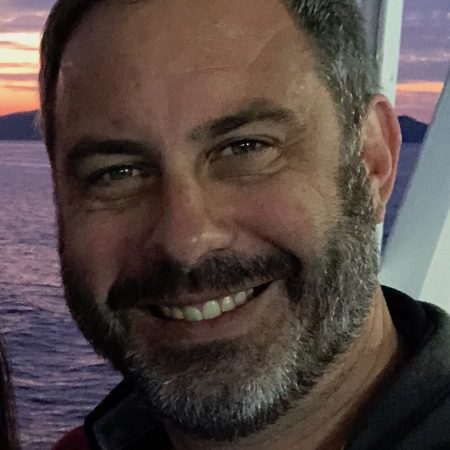

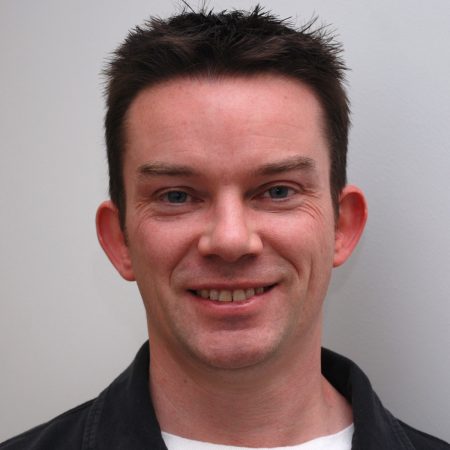

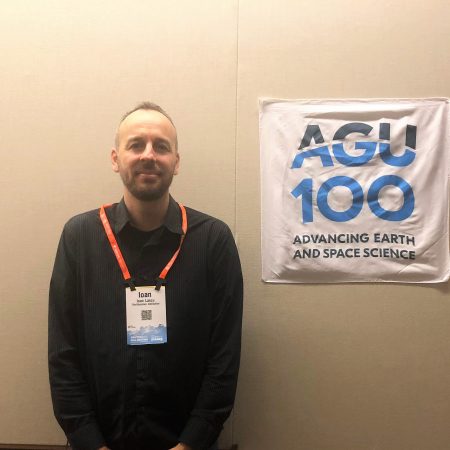

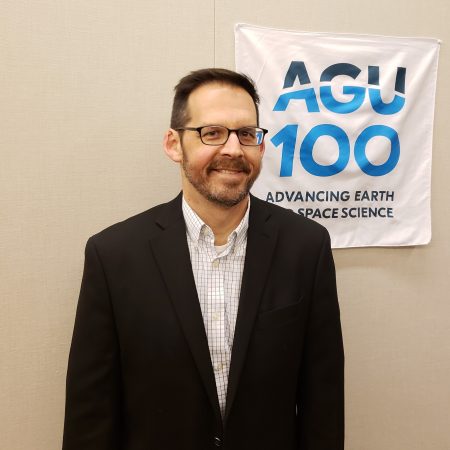

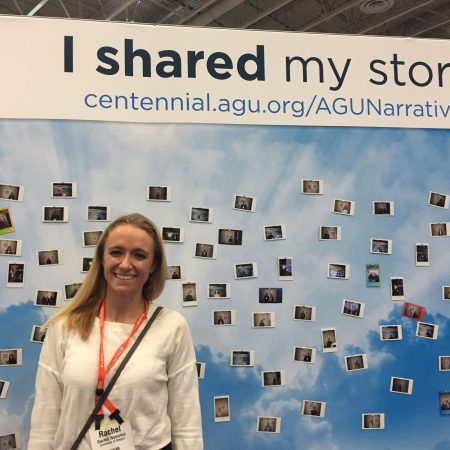
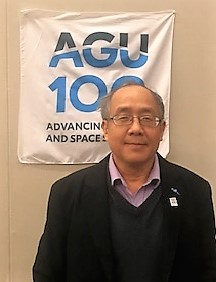



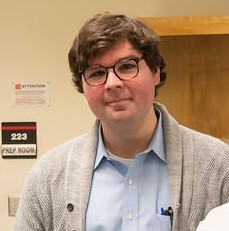

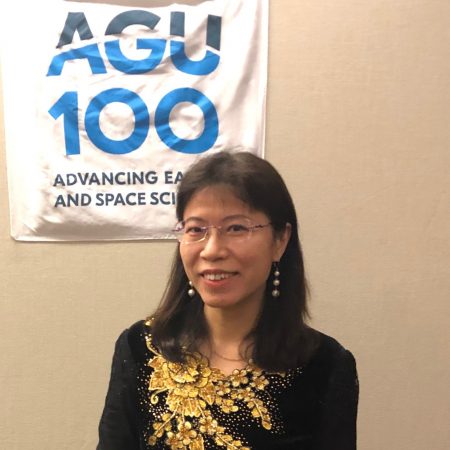
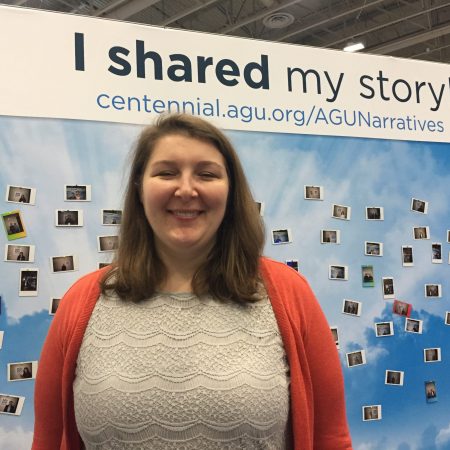
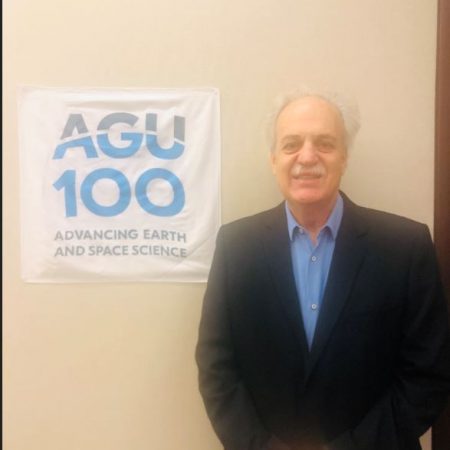
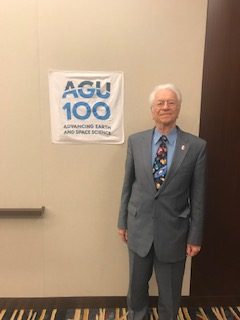
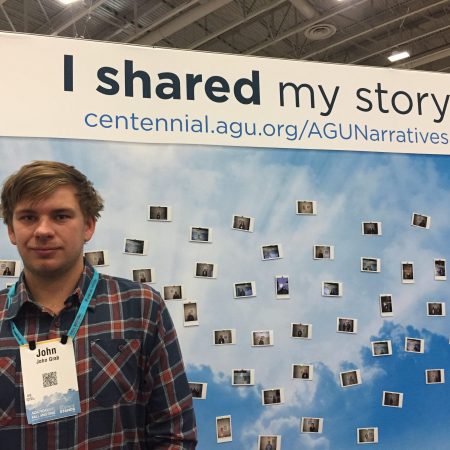
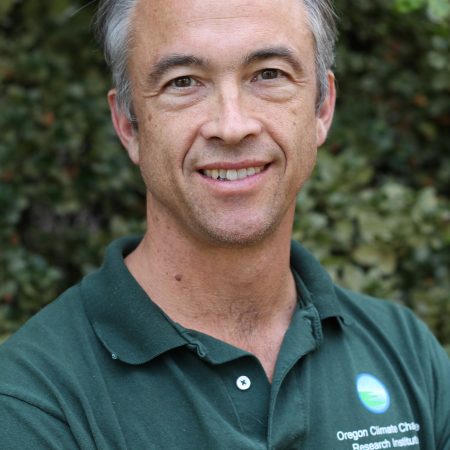
!["AGU is interdisciplinary, [it] helps breaks down the disciplinary stovepipe we often get into." an interview with Jim Irons](https://archive.storycorps.org/uploads/2019/02/181212_Irons-450x450.jpg)
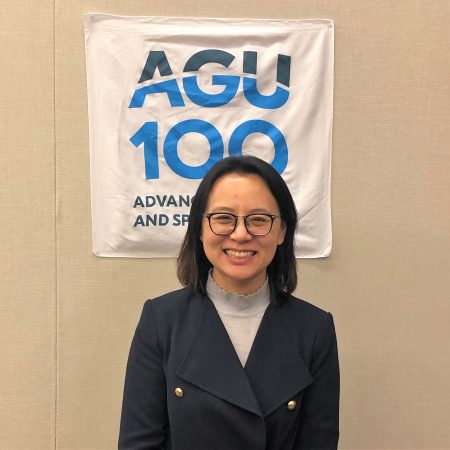
!["[It is] not just working on something for yourself but that this all fits into a bigger picture." an interview with Daniel Verscharen](https://archive.storycorps.org/uploads/2019/03/181212_Verscharen-450x450.jpg)
